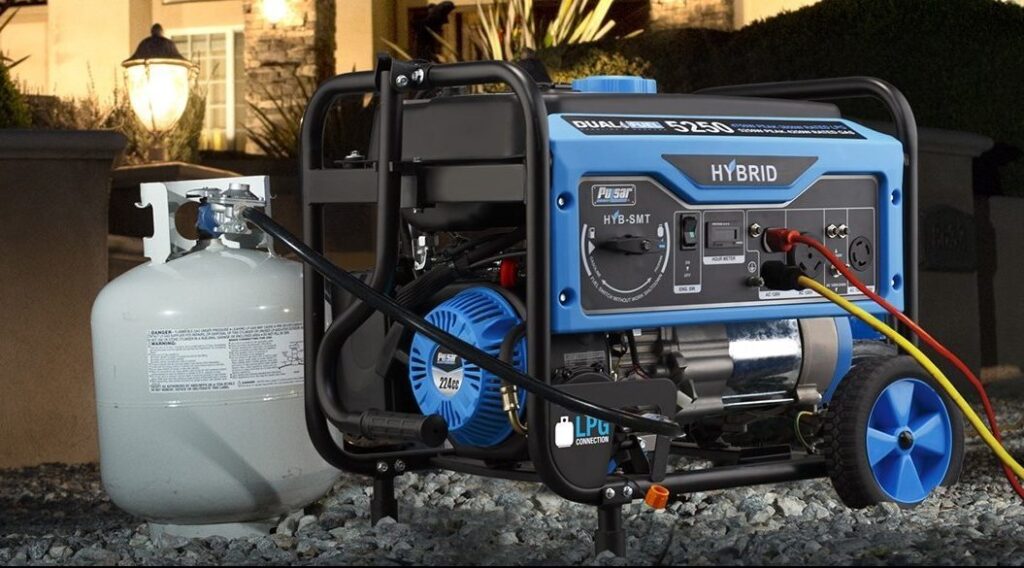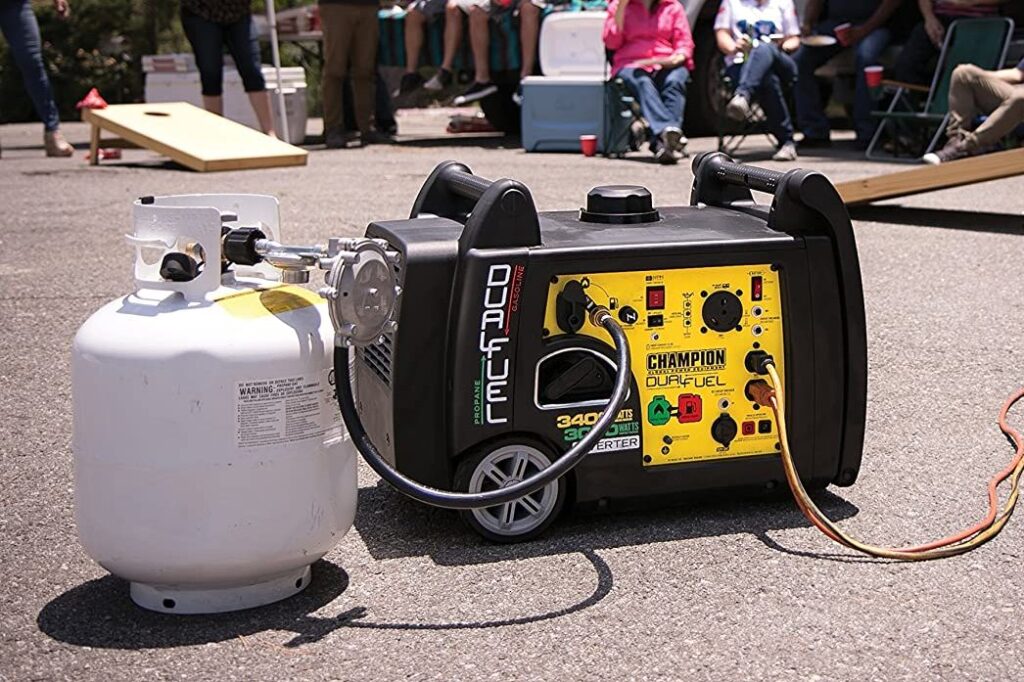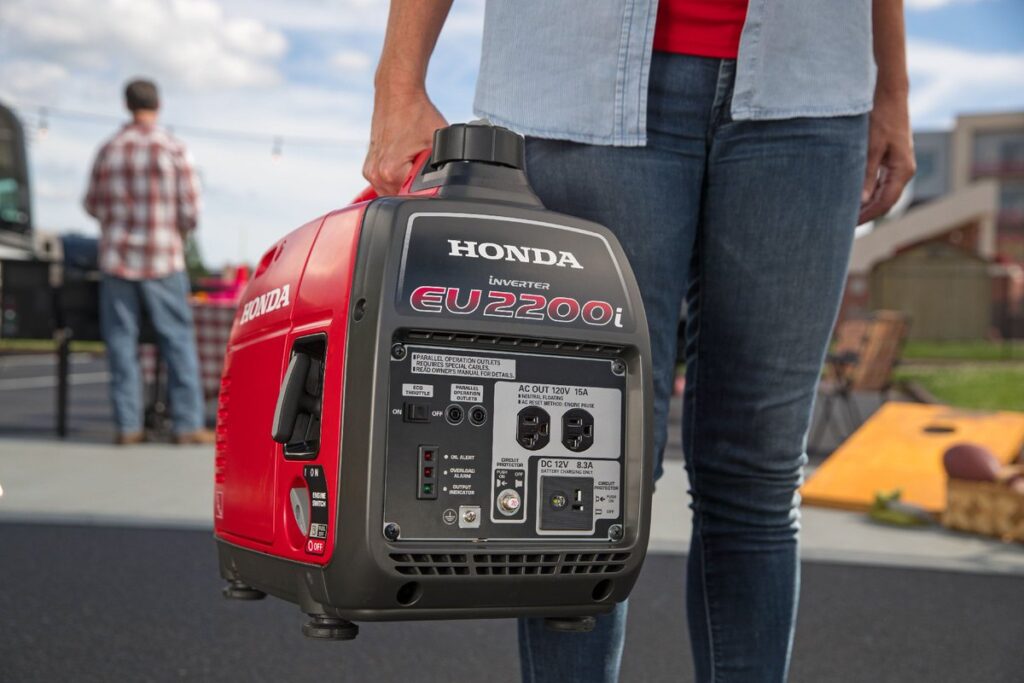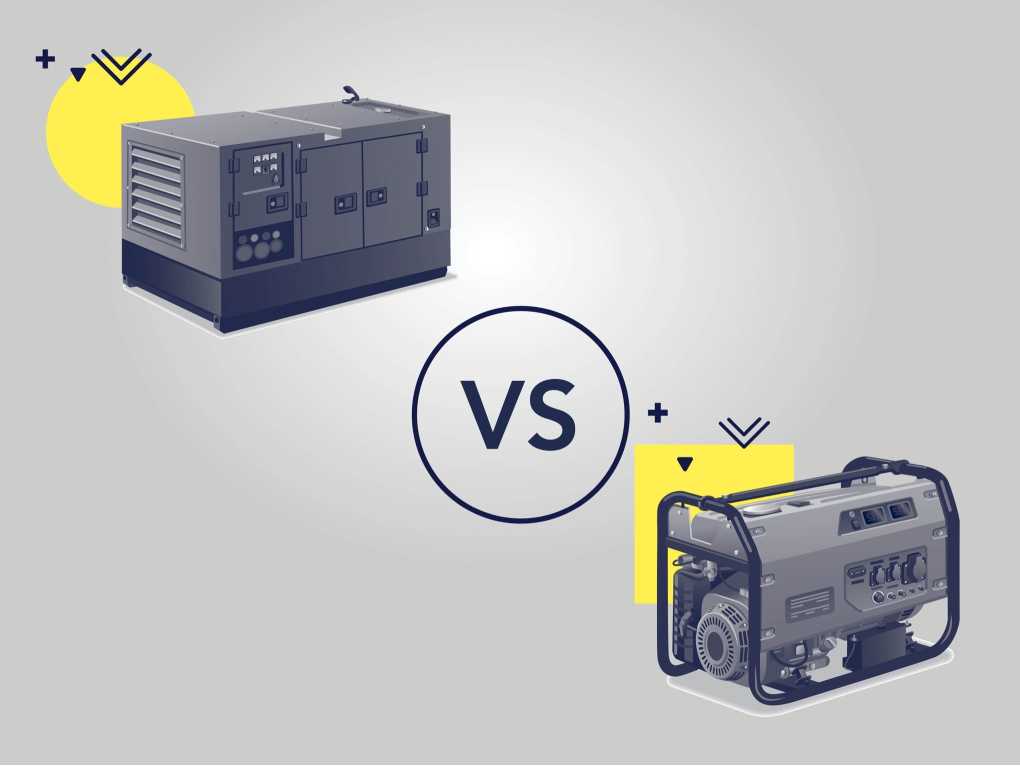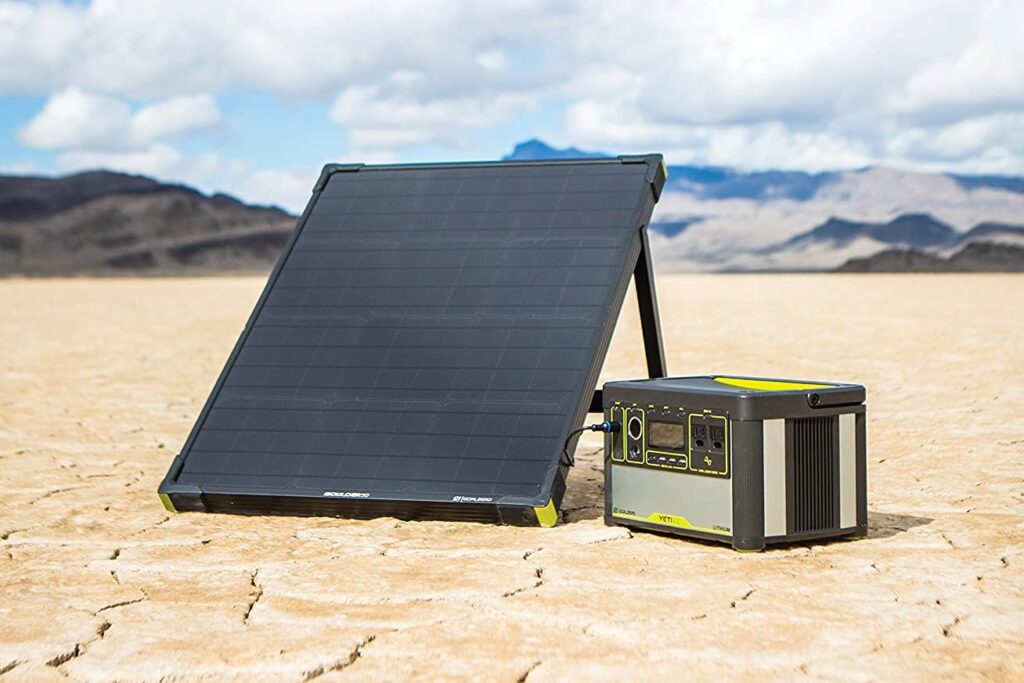Usually, just when we need something is when it least works. This is when you start looking for and consulting the manuals of the devices. If your generator runs for a few seconds then stops, do not despair. This problem is common and may be caused by a little problem that can be easily resolved. It is not usually a question of whether you’ve operated the generator inappropriately. But rather they are equipment that requires a certain amount of routine care to stay in perfect condition.
For this reason, we have created a troubleshooting guide for your generator. This will ensure you wouldn’t need to experience those embarrassing moments and that things do not stop working when you need them most.
On the other hand, as electric generators are equipment that use flammable products (lubricant and fuel), it becomes more important to know what to do as soon as possible without calling a technician, thus avoiding accidents or not complicating the situation.
If you’re not sure of the problem with the generator, it’s always important to check your manual to see how to start it up. You should ensure there is enough fuel and engine oil in the generator, and that the fuel tank is switched on.
What should I do if my generator’s engine stops running suddenly? Well, some of the reasons are:
If your generator starts then stops, it may be because of overloading. All generators have their output capacities. However, if the load is higher than the wattage power of the generator, the generator engine may stop running after an irregular or change in operating noise or rhythm. For example, we’re going to assume you’re using the Champion 100307 Dual Fuel RV Ready Portable Generator. It has 4,375 surge watts and a running power of 3,500 watts. If you have a total equipment load of 4,300 watts, the generator may keep running while still producing surge power. However, as soon as it stops producing surge power and it starts running continuously, the generator will automatically get overloaded. It won’t run for long as the circuit breaker Trusted Source Circuit breaker - Wikipedia A circuit breaker is an electrical safety device designed to protect an electrical circuit from damage caused by an overcurrent or short circuit. en.wikipedia.org will trip. Hence, it will cut off power to the circuit. However, if you have no circuit breaker, the generator will struggle to keep up with the additional load demand. This will cause overheating, and mayu result in fire.
So, it’s advisable to only buy a generator with overload protection and do not overload the generator. A generator is best operated at 50% load capacity. Therefore, calculate the load of your equipment if you’re not sure. If you have more load than the generator can supply, then don’t run them simultaneously.
A typical electric generating set needs oil and fuel to work. If your generator has an oil shortage, the generator may not start or may stop working while running. Engine oil shortage can lead to poor lubrication. This will lead to premature wear of your engine. Fortunately, some advanced generators have low-oil shutdown features. This will automatically stop the generator while running or prevent the generator from starting if the oil is below the running level. Some generators will also show light indicating low oil on the panel.
The solution is simple; top-up or change the engine oil. The most common types of engine oil for electric generators are 10W30, SAE 30, 5W-30.
Interestingly, 30% of the fuel used in generators is responsible for energy production, the rest is removed by gas and heat. Thus, the cooling system that an electric generator has must be one of the main characteristics to consider, since it will be responsible for optimizing the operation of the engine.
Air cooling systems such as the radiator Trusted Source Radiator - Wikipedia Radiators are heat exchangers used to transfer thermal energy from one medium to another for the purpose of cooling and heating. The majority of radiators are constructed to function in cars, buildings, and electronics. en.wikipedia.org cool the motors of portable electric generators preventing them from overheating. The cause for a low coolant level is when the water level is low due to an internal or external leak. Without enough coolant, the engine will overheat and shutdown.
These are often a problem in industrial and diesel generators. Too low oil level can also cause a low coolant in the radiator. So, you have to top up or change the engine oil.
This is probably the easiest problem to detect. For portable generators or non-industrial models, you only need to check the fuel level before and during operation and refuel as appropriate.
Commercial or industrial standby generators may need an external tank if you need several hours or days of runtime without having a low fuel level.
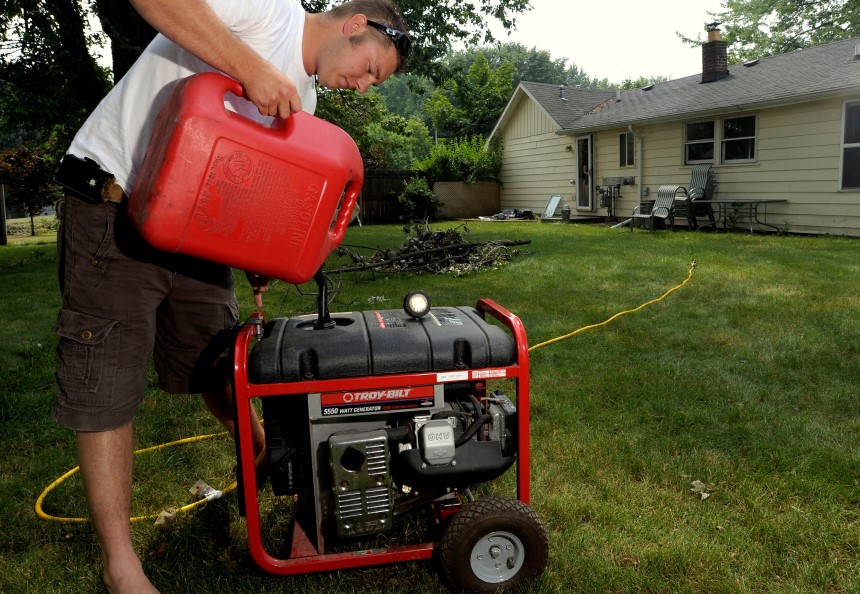 The fuel line got clogged
The fuel line got cloggedSome of the signs of a clogged fuel line are fuel leakages, fuel odor, engine misfires, problem starting, as well as stalling engines. Stale fuel can clog the fuel line.
A fuel system cleaner may be enough to unclog the fuel line.
A dirty fuel tank may cause the generator not to start or stop after starting. A dirty fuel tank may be caused by degrading fuel in the generator. This may happen after a long time without using the generator. A dirty fuel tank may also cause a clogged fuel line and/or generator. If this is the case, it is better to empty the degraded fuel, clean the entire fuel system or seek the help of a specialist.
A clogged carburetor can also be caused by dirty or degraded fuel or a dirty fuel line. You can clean the carburetor by applying a fuel system cleaner. If the problem is not resolved, you may have to disassemble the carburetor to have it unclogged.
One of the various reasons the engine of your generator may not start or stop working is due to component failure.
You may also experience challenges because of a battery problem. It may not be charged properly or it may have been disconnected. So watch out for battery connection problems and ensure it is charged. Check the electrical connections, contacts, cables, etc. Some of these accessories may not be as visible on a portable generator.
Check that the choke lever or shock is not still activated after starting the generator. Otherwise, the generator may stop or may not generate a constant current.
A malfunctioning oil pressure switch can cause the warning light of this feature to remain on at all times. It may also not function and may cause intermittent gauge or inaccurate operation. This failure can stop the functioning of the engine, making it lose power.
To prevent the problem, always use oil with the right viscosity rating. Choose the one recommended by your manufacturer.
A failed coolant sensor can cause the generator to stop working. This may be due to the overheating of the coolant around this sensor while the inside of the radiator is cool. You should check if the switch is opening and closing correctly. You can also check for broken wires in the circuit. You may also remove and replace the coolant switch.
A blocked generator air filter can generally cause poor engine performance or even total stoppage. The engine may misfire or be difficult to stay. A blocked air filter can be a result of dirt. This restricts the air supply to the engine. Hence, there will be unburned fuel causing soot residues to form around the spark plug.
You’d need to remove, clear, and clean the blockage in the air filter or simply replace it.
It’s always advisable to choose a generator with overload protection to prevent overheating and fire outbreaks.
Also, choose generators with low oil shutdown to protect the engine during low oil situations.
You should also store your generator properly, especially during periods of non-use.
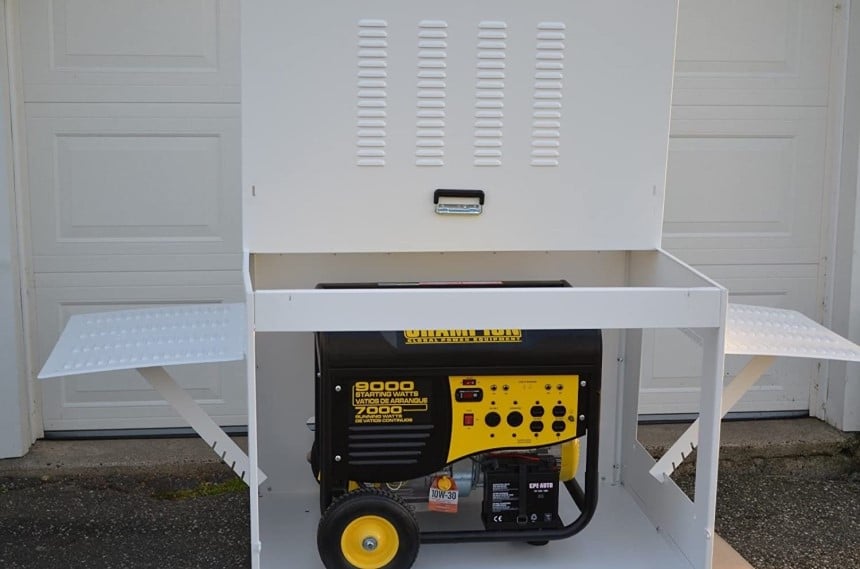
As we have seen, this problem can be due to different causes, so we must check different aspects. First check that the generator has sufficient fuel, be it diesel or gasoline, and the choke lever is not on after starting.
If the generator does not have a considerable oil level, it may not start or it may stop halfway. So, check the level.
Bleed the gasoline system, air bubbles may have passed into the fuel flow and the gasoline or diesel required for combustion may not arrive. It’s about loosening hoses and spilling a little fuel.
And finally, the generator’s carburetor may have gotten clogged following a lengthy period of unuse.
